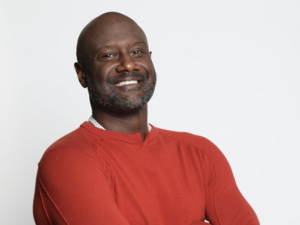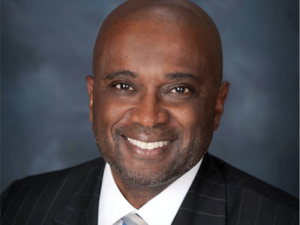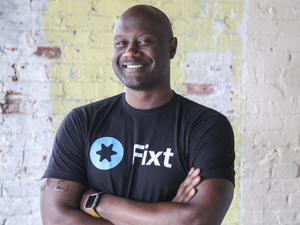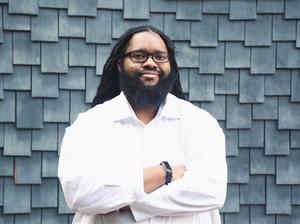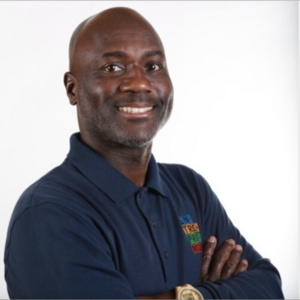
One year after announcing plans to raise a $250 million venture capital fund, Baltimore investor Luke Cooper is lowering the goal for his first fund to $50 million.
Cooper's Latimer Ventures has raised $8 million so far and has $15 million in soft commitments but Cooper said he decided to lower his goal due to the downward trend in the venture capital markets, the racial bias that Black leaders face in the majority-white venture capital industry, and the realities of being a first-time fund leader. Despite these challenges, Cooper said he met his new goal of raising $5 million by the end of 2022 and has already made the fund's first investment. While most funds take two and a half years to three years to build, he expects Latimer Ventures to have a full close before that timeline.
Cooper comes to venture capital after finding success on the other side of the table. His company Fixit earned $6.5 million in funding before being acquired by Fortune 500 firm Assurant, one of the biggest success stories for a Black founder in Baltimore.
“I quickly realized that this business is different than a tech startup,” Cooper said. “I needed to adjust things in ways that would reflect the current market environment and would reflect the realities of a first fund.”
Cooper is not the only Baltimore investor trying to raise money during a difficult time. McKeever "Mac" Conwell is trying to raise a $40 million RareBreed Ventures fund, down from the $75 million goal he had in spring 2022. The combination of a tough market and federal regulation caused him to partner with two other funds to create a vehicle for smaller investors to participate in his round. Conscious Venture Labs CEO Jeff Cherry is also trying to raise a $50 million fund, a similar size to Cooper's.
At Latimer Ventures, Cooper is focused on investing in enterprise software companies that are entering the series A stage of investment. Early investors in the fund include former Deputy Secretary of Education and AIG Board Member James Cole, former T. Rowe Price Group Inc. Chief Investment Officer Mark Vaselkiv, Logitech CEO Bracken Darrell and Dan Rizzo, former chief innovation officer for Inovalon.
The firm made its first investment in the software company Pienso. The Massachusetts Institute of Technology spinout is focused on using language models to help businesses identify trends in customer calls or go through survey responses. The $1 million investment is Cooper's first as Latimer Ventures, but he has made nine investments in the past as an angel investor through a mix of his own money and support from investors.
Some of his personal investments have already begun paying off. Cooper gave an early investment to health care analytics platform Intus Care, writing them a $400,000 check based on an $11 million valuation. One year later, the company closed a $14.1 million Series A round with a $33 million valuation, Cooper said.
"It's about founders getting to exits that put money in their pocket, that help them commit those dollars to their communities in ways that transform it, and then [they] become investors in other people's things and become icons in their own communities," Cooper said.
Cooper is unsure how much he should pin his difficulties raising money on the downturn in the market, being a first-time fund leader, or the racial bias that plagues Black startups and venture capital leaders. Black founders typically receive less than 2% of the venture capital dollars allocated to startups each year. Only 3% of the venture capital partners in the country are Black, according to the National Venture Capital Association.
Cooper served on Maryland Gov. Wes Moore's pension transition team to push for public investment funds, such as state pension funds, to start working with diverse fund managers to open up access to capital.
The lack of diversity in venture capital persists despite evidence that diverse investors generate better financial returns. A 2018 study by the Harvard Business Review found that being ethnically homogenous reduced an investment's success rate by 26.4% to 32.2%.
"White dudes with my background raise a quarter of a billion dollars without even thinking about it,” Cooper said.
